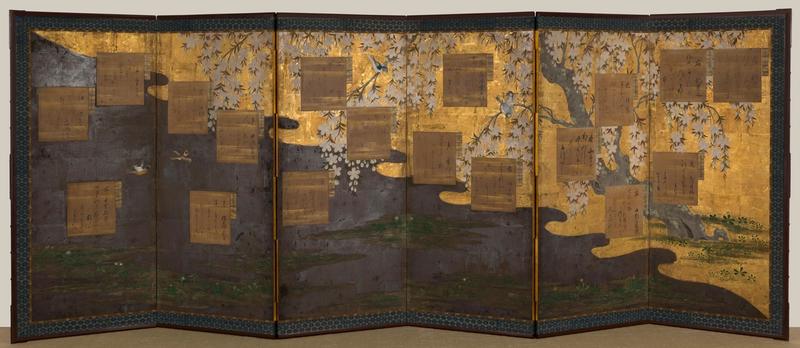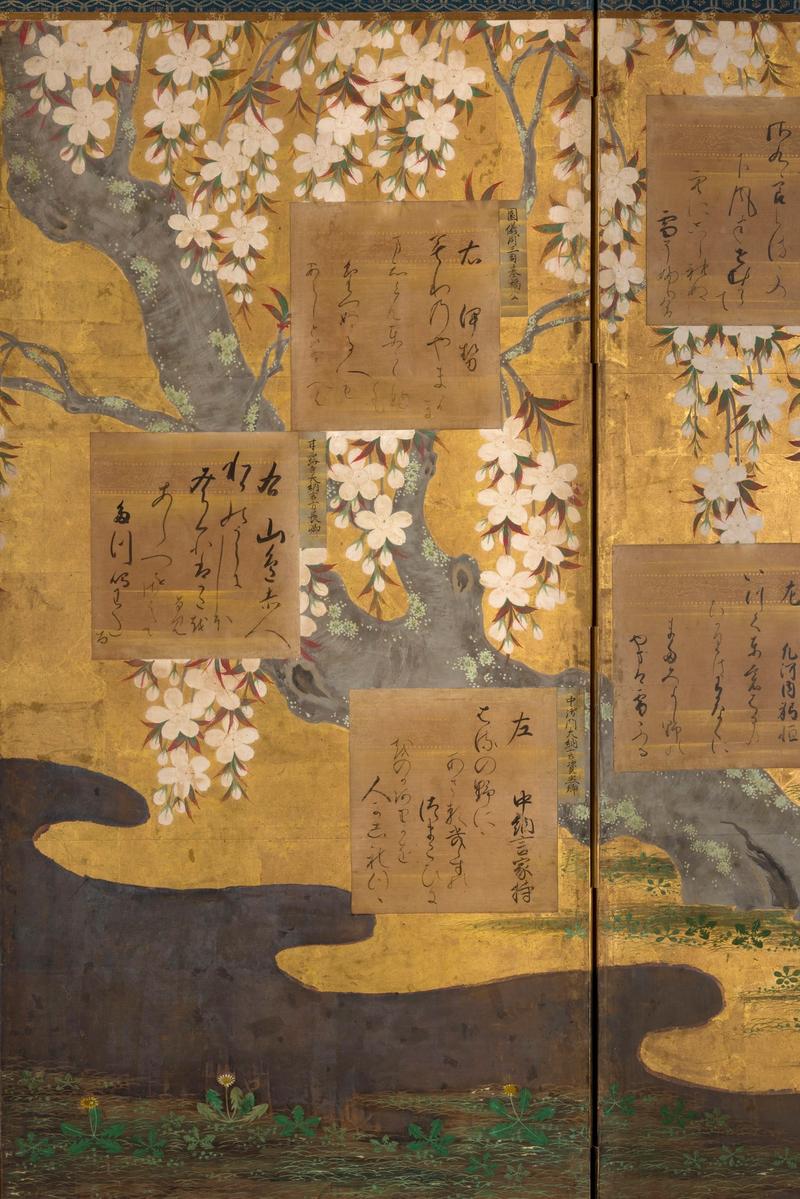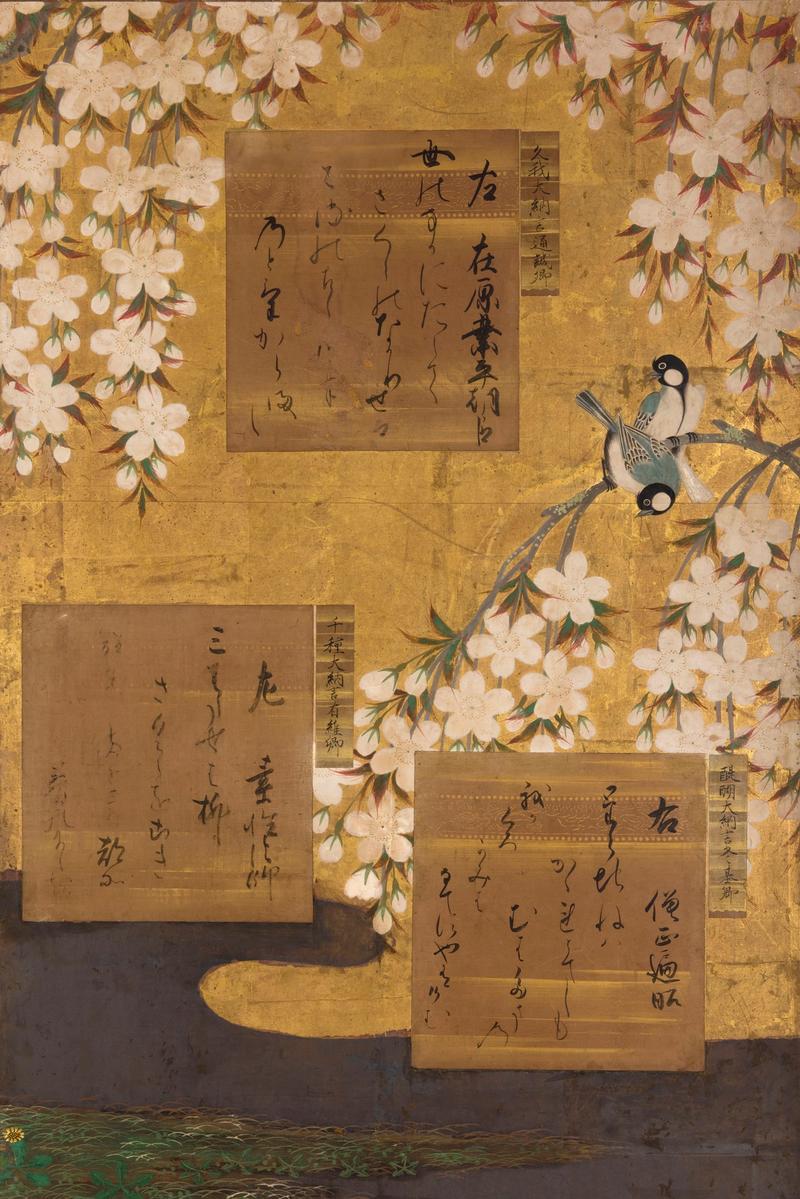A six-fold screen depicting a large sakura (cherry) tree in full bloom hanging over a riverbank, with applied shikishi (poem cards).
The shikishi were executed by kugyō (court nobles) in 1691 and rest against a painting of a weeping cherry tree, spring flowers and dandelions. Various birds are flying or perched on the tree branches; a stylised gold river bank runs diagonally across the screen beside a river in siler leaf.
Ink, colour, gold, silver and gold leaf on paper.
Japan, late 17thcentury, Edo period, 1691*.
Shikishi are square sheets of paper used for calligraphic poems or paintings. During the mid-Heian and Kamakura periods, such papers, termed shikishigata, were inscribed with poetic calligraphy and attached to screens or sliding door panels. Later, shikishi came to be used independently for calligraphy and paintings. Often these squares are highly decorated with mica, gold or silver cut into small pieces or sprinkled like mist or finely painted with various motifs, as exemplified by the current example.
On this screen, each shikishi is accompanied by a slip inscribed with the name and title of the nobleman who executed the corresponding calligraphy. *According to the inscriptions of the names and titles of the court nobles beside each shikishi paper, 1691 is the only year when the titles of all the noblemen correspond and therefore it is most likely that the calligraphy of each shikishi was executed in 1691.
Calligraphers of shikishi on the screen are as follows (from right to left).
Panel 1
- Konoe Motohiro (1648-1722), Kanpaku (Chief adviser to the Emperor)
- Takatsukasa Kanehiro (1660-1725), Sadaijin (Minister of the Left)
- Ōinomikado Tsunemitsu (1638-1704), Udaijin (Minister of the Right)
Panel 2
- Nakamikado Sukehiro (1636-1707), Dainagon (Major Counsellor)
- Sono Motoyoshi (1622-1699), Gidōsanshi (the government position equivalent to the Chief Minister, the Minister of the Left and the Minister of the Right)
- Kanroji Katanaga (1649-1694), Dainagon (Major Counsellor)
Panel 3
- Daigo Fuyumoto (1648-1697), Dainagon (Major Counsellor)
- Koga Michitomo (1660-1719), Dainagon (Major Counsellor)
- Chikusa Arikore (1638-1693), Dainagon (Major Counsellor)
Panel 4
- Nanba Munekage (date unknown), Chūnagon (Middle Counsellor)
- Higashibōjō Tsunenaga (1622-1700), Dainagon (Major Counsellor)
- Aburanokōji Takasada (1622-1699), Chūnagon (Middle Counsellor)
Panel 5
- Nakayama Atsuchika (1656-1716), Chūnagon (Middle Counsellor)
- Uramatsu Okimitsu (1652-1707), Saishō (Associate Counsellor)
- Seikanji Hirosada (1662-1707), Chūnagon (Middle Counsellor)
Panel 6
- Nakanoin Michimi (1668-1739), Saishō (Associate Counsellor)
- Kazehaya Sanetane (1632-1710), Zen-saishō (Former Associate Counsellor)
- Hamuro Yorishige (1669-1705), Saishō (Associate Counsellor)
Poems on this screen were taken from the classical masterpieces of the Heian period (794-1192), such as Kokin-wakashū (Collection of Japanese Poems Ancient and Modern, compiled in the early 10th century), Gosen-wakashū (Later Collection of Japanese Poems, compiled in late 10th century) and Shūi-wakashū (Collection of Gleanings, compiled in circa 1005), which includes the following poems.
- Poem by Ki no Tsurayuki (872-945), written by Takatsukasa Kanehiro
Sakura chiru
ko no shita kaze wa
samukarade
sora ni shirarenu
yuki zo furikeru
Beneath cherry trees
where blossoms scatter
no chill in the wild
yet snow falls
unknown to the sky
- Poem by Ariwara no Narihira (825-880), written by Koga Michitomo
Yo no naka ni
taete sakura no
nakariseba
haru no kokoro wa
nodoke karamashi
If this world had never known
the ephemeral beauty
of cherry trees,
people’s hearts in spring
would have been calm and tranquil
- Poem by Sosei (844-910), written by Chikusa Arikore
Miwataseba
yanagi sakura o
kokimazete
miyako zo haru no
nishiki narikeru
Seen from the distance
willow green and cherry pink
woven together,
forming a delicate brocade
of the springtime capital
- Poem by Minamoto no Kintada (889-948), written by Hamuro Yorishige
Yukiyarade
yamaji kurashitsu
hototogisu
ima hitokoe no
kikamahoshisa ni
During the journey
on the mountain path
I couldn’t help staying overnight
as I just wished to hear
one more song of the little cuckoo
Screens
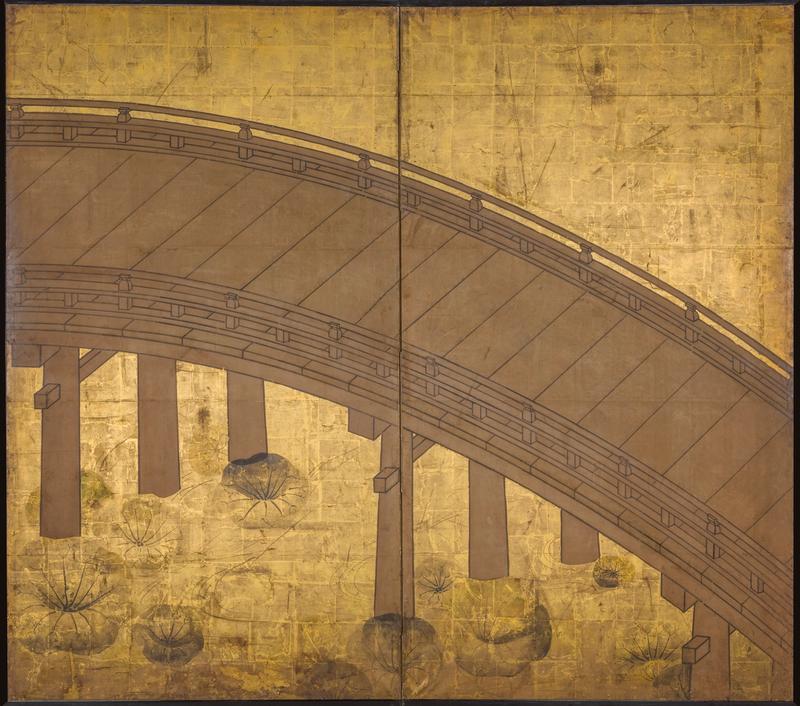
A two-fold screen with the Uji River and its bridge

An eight-fold screen depicting flowers of the four seasons
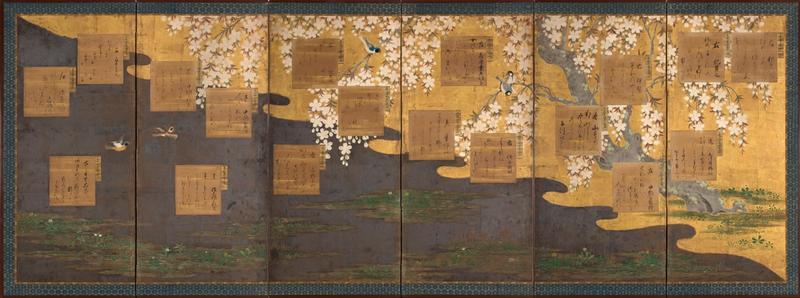
A six-fold screen with a cherry tree
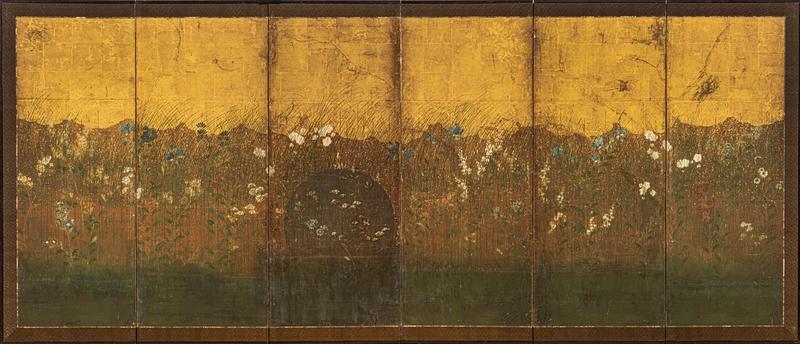
A six-fold paper screen with the Plains at Musashino
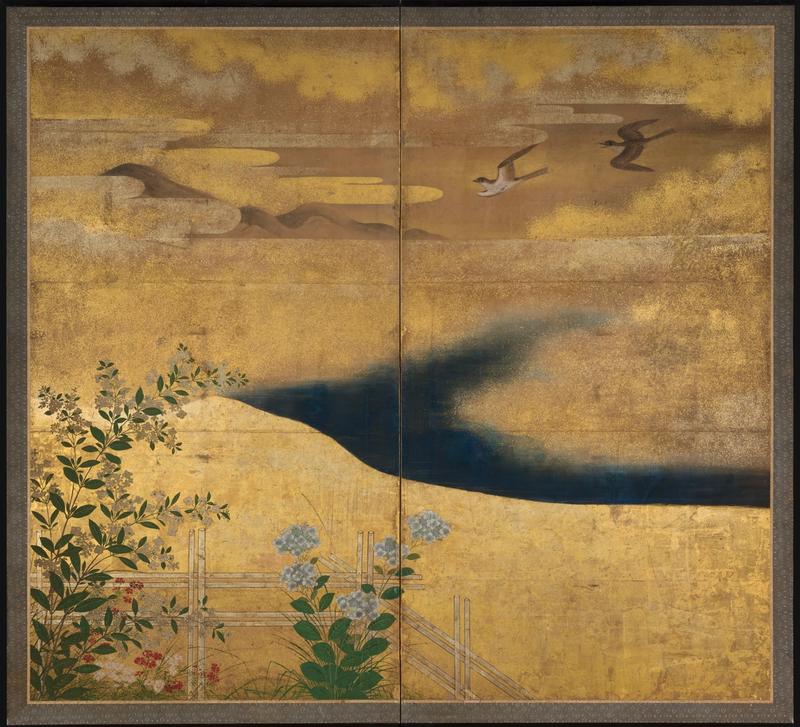
A two-fold screen with a river landscape

A six-fold screen with a covey of uzura and chicks
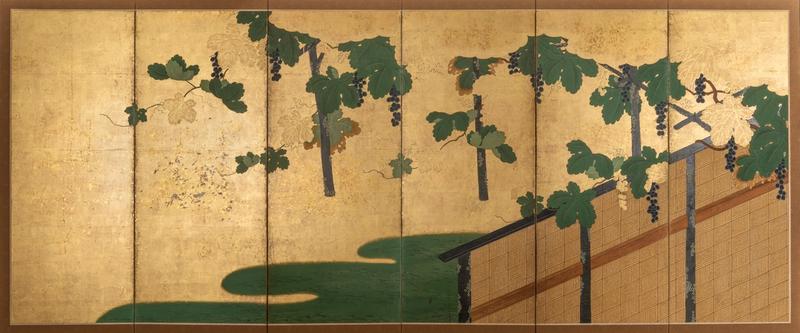
A six-fold screen with grape vines
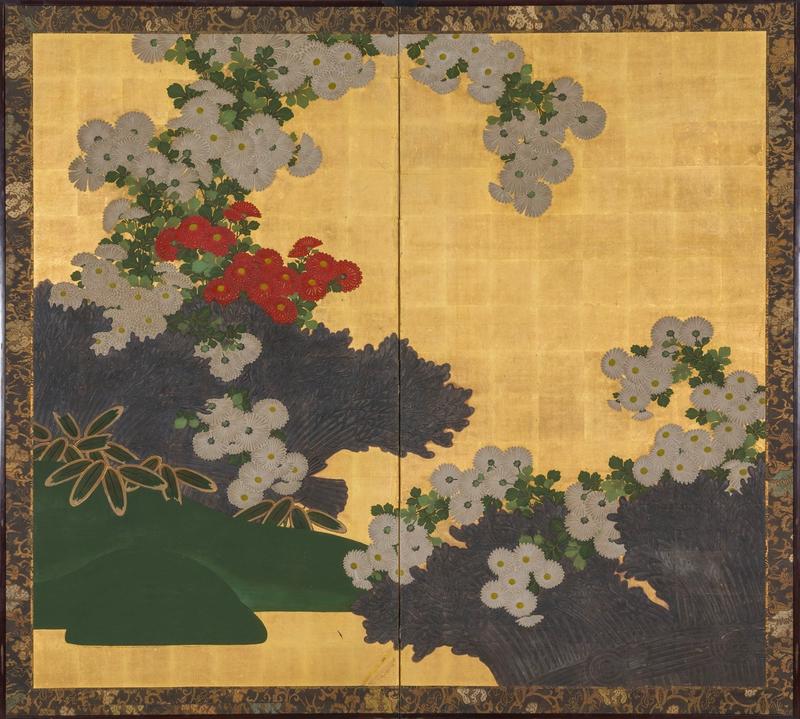
A two-fold screen with chrysanthemums
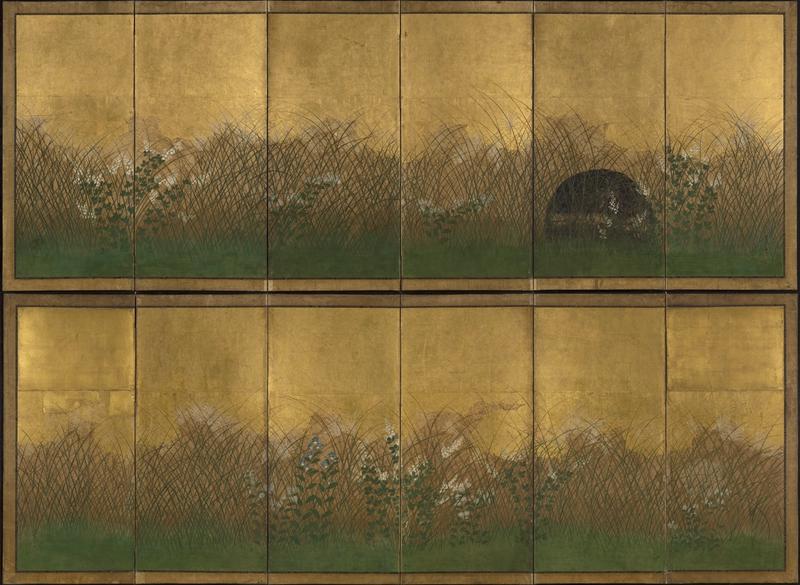
A pair of six-fold paper screens with the Plains at Musashino
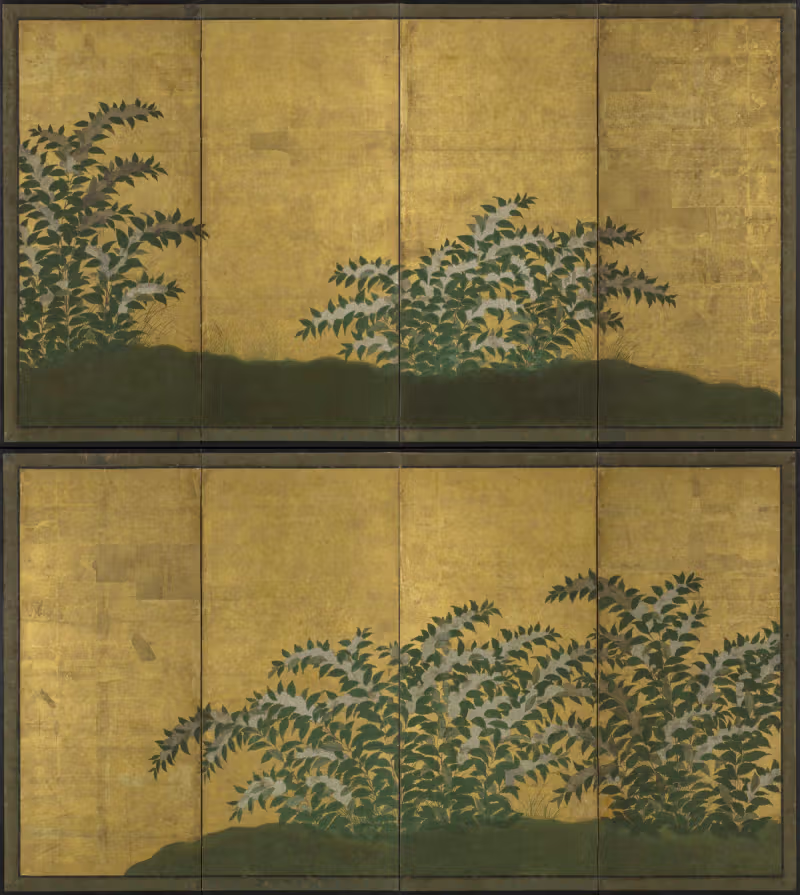
A pair of four-fold screens with kuri flowers
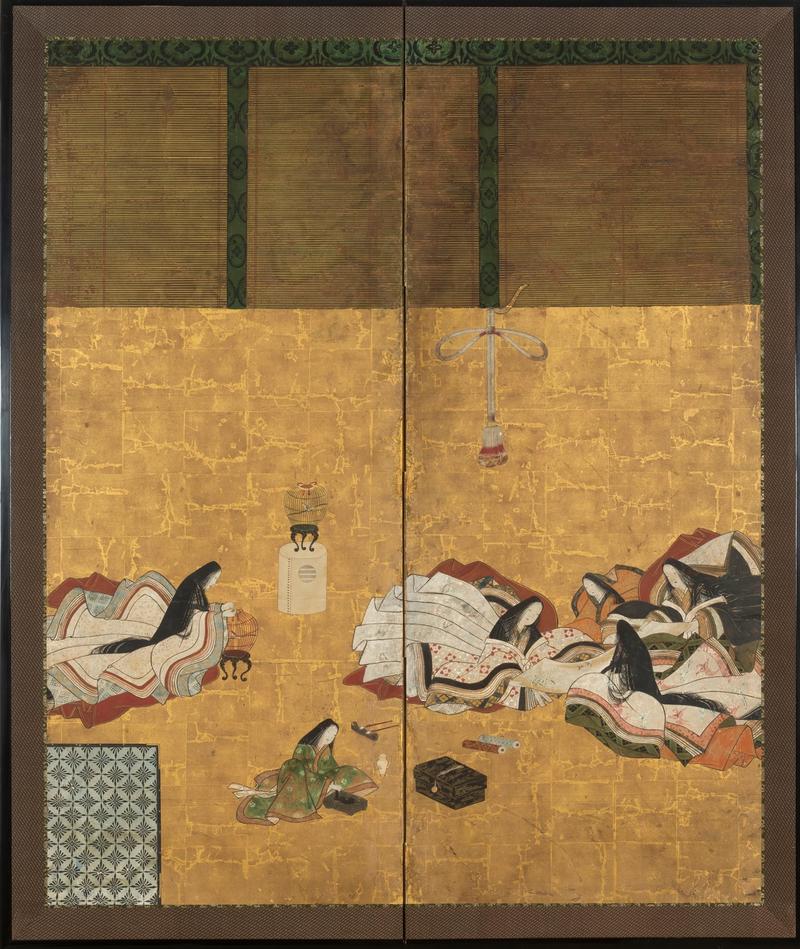
A two-fold screen with court ladies
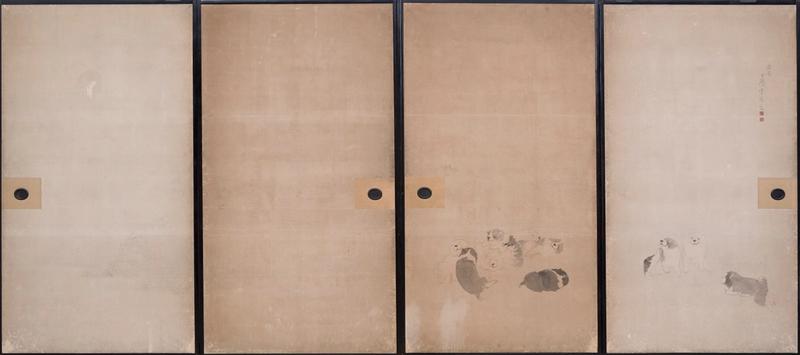
Four fusuma by Nagasawa Rosetsu

A six-fold screen with autumn flowers and grasses

A six-fold paper screen with poem slips
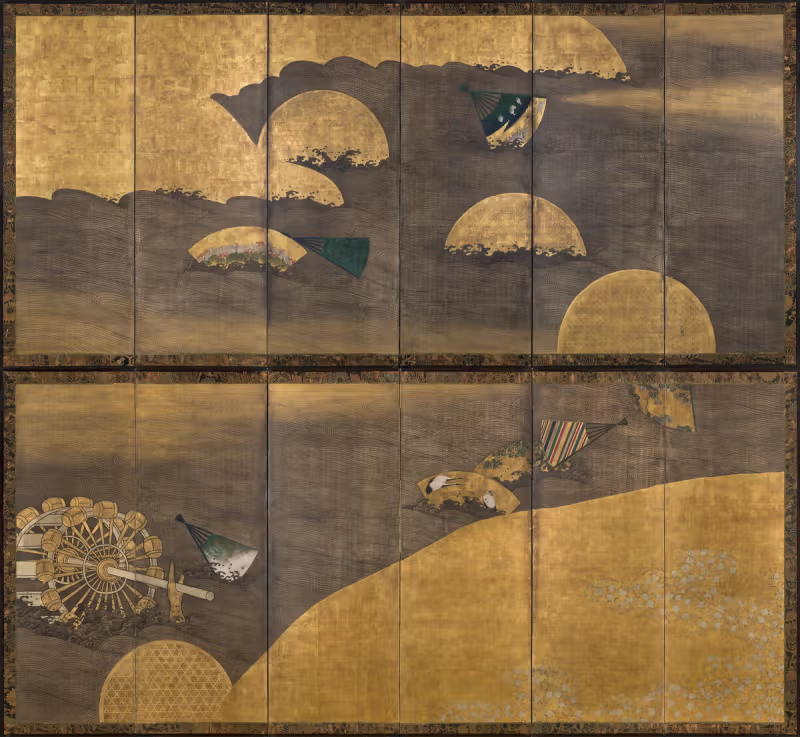
A pair of six-fold screens with scattered fans
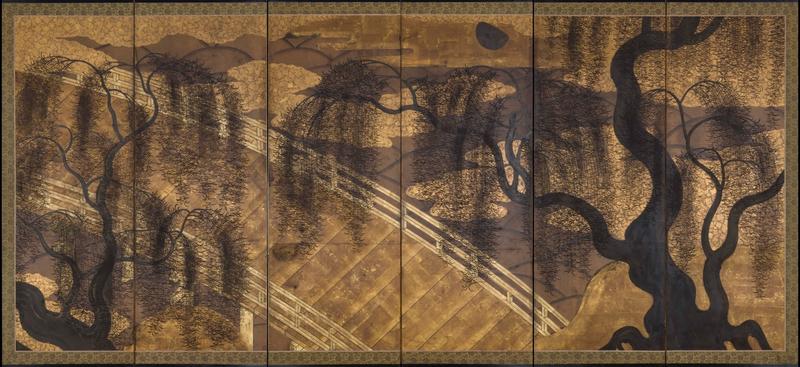
A paper screen with the Uji river and its bridge
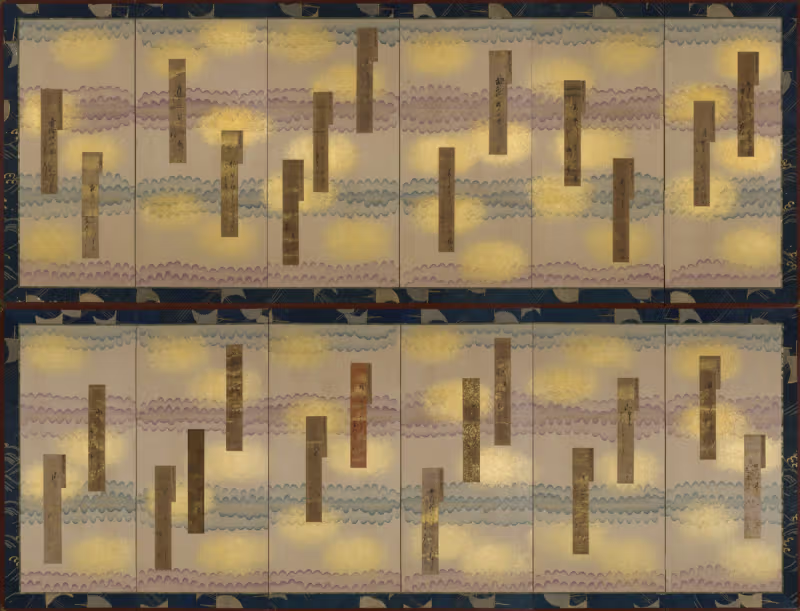
A pair of six-fold screens with poem slips from the 17th century
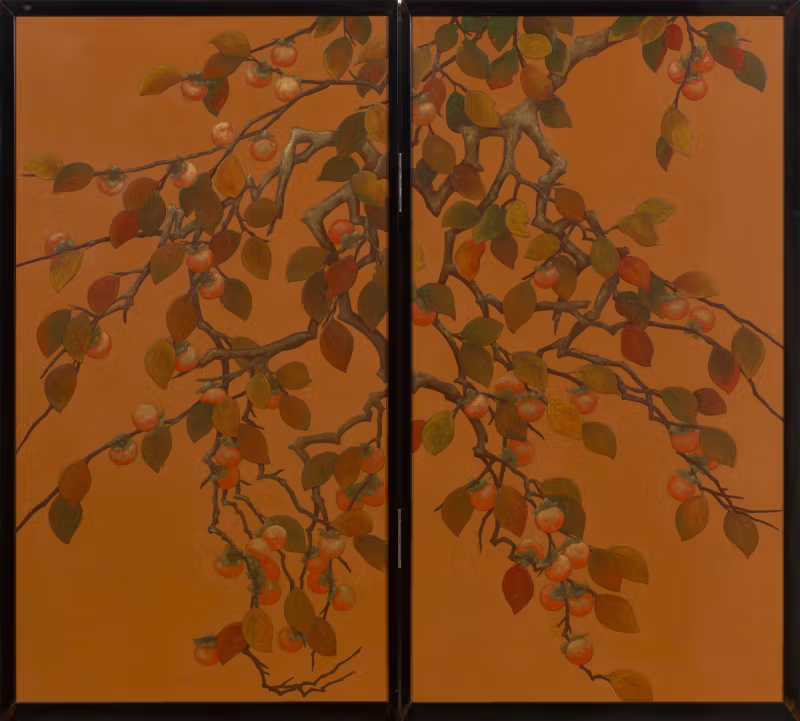
A two-fold lacquer screen with a persimmon tree
